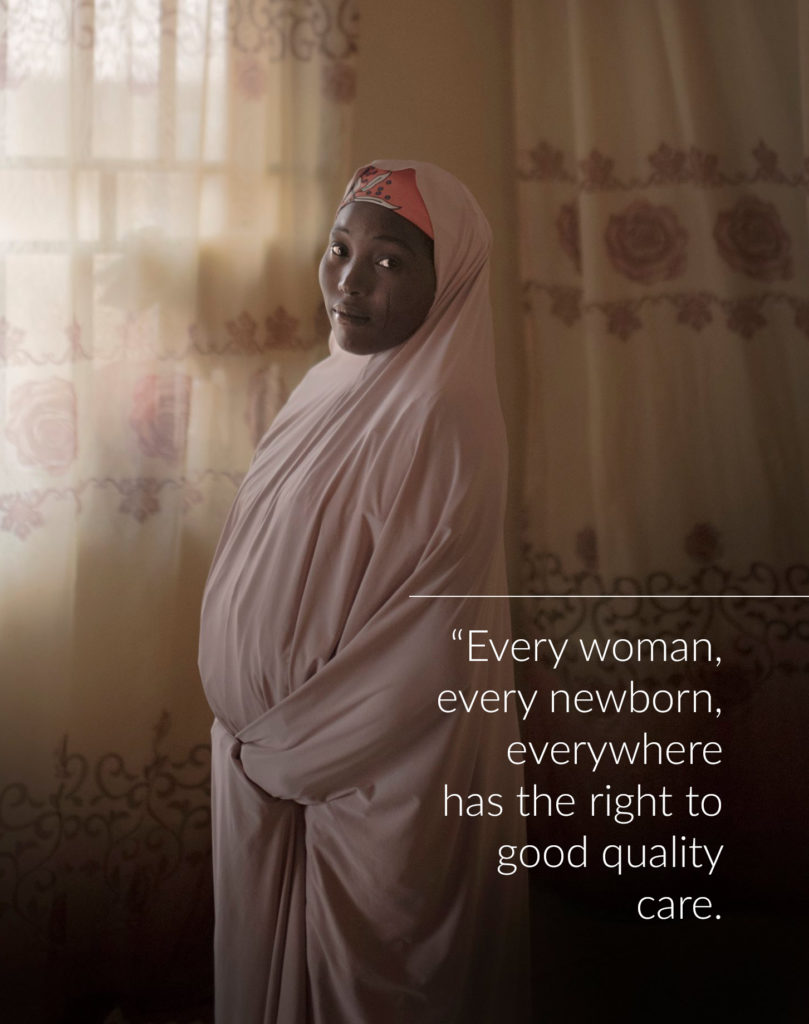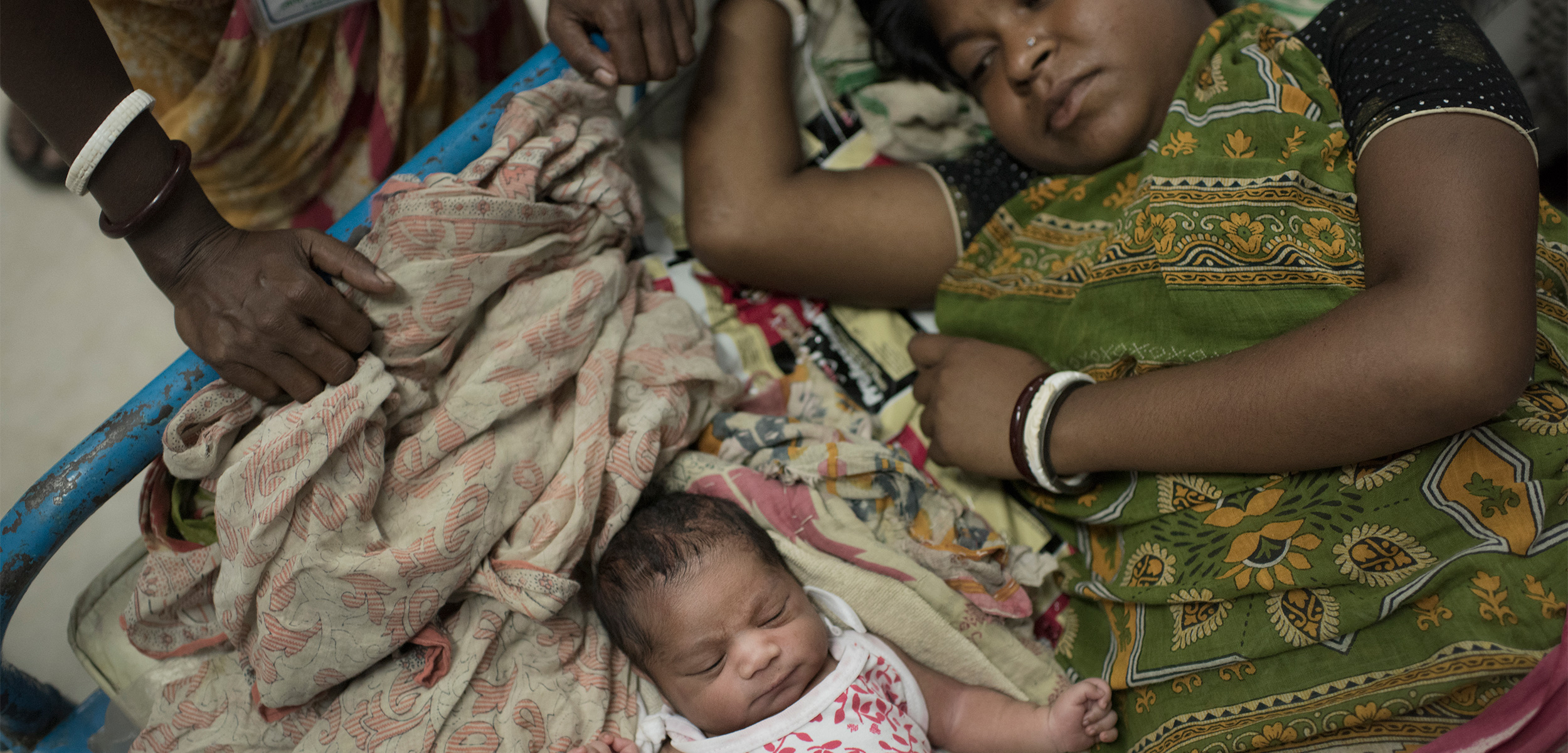 Produced by Women Deliver
September 19, 2016
Produced by Women Deliver
September 19, 2016
Just in time for UN General Assembly 2016, the Lancet released a new Maternal Health Series, which shines a light on the causes, trends, and prospects for maternal health in the current era of rapid demographic and socioeconomic transition. Women Deliver knows that investments in maternal, newborn, and reproductive health not only save lives and improve health, but also provide social and economic benefits for developing nations. While maternal deaths globally have fallen by nearly half since 1990, many countries and groups of women saw little or no progress. This is why this Maternal Health Series is so important; it will help guide the solutions that we need to ensure good quality of care, for every women, every newborn, every where.
 We sat down with Professor Wendy Graham, Professor of Obstetric Epidemiology, London School of Hygiene & Tropical Medicine to talk about the current landscape of maternal health care and services, future challenges, and strategies to improve maternal wellbeing.
We sat down with Professor Wendy Graham, Professor of Obstetric Epidemiology, London School of Hygiene & Tropical Medicine to talk about the current landscape of maternal health care and services, future challenges, and strategies to improve maternal wellbeing.
What would you say are the top takeaway messages from the series?
The overarching message we need to spread is that every woman and every newborn, regardless of where they live, has the right to more than just access to services; they have the right to good, quality healthcare. But behind this main headline, the series flags 4 key themes:
- Despite global reductions in maternal mortality, significant challenges remain for many women in terms their health status and their access to quality health care.
- The causes of maternal mortality and morbidity are increasingly diverse, and the overall burden falls disproportionately on the most vulnerable groups of women in all countries.
- For women using services, some receive excellent attention but too many experience care that is not grounded in evidence. And still other women receive no care at all.
- Reaching every woman with the quality care she deserves depends on context-appropriate strategies and national plans.
 How will this new research help guide efforts to maternal health moving forward?
How will this new research help guide efforts to maternal health moving forward?
The Series synthesizes new evidence generated over the last 10 years and provides a clear call to action with 5 main ingredients:
- Prioritize good quality maternal health services that respond to local needs.
- Promote equity through universal coverage of quality maternal health services.
- Strengthen health workforce & facility capability, and data & surveillance
- Guarantee sustainable financing for maternal & perinatal health.
- Improve the availability and use of local evidence to inform quality improvement.
What is the good news and the not-so-good news?
Of course, the picture of maternal health is not as simple as “good” or “bad”, and indeed one of the key findings of the Series was the huge diversity in the burden of poor health and in the care experiences of women around the world.
But at a simple level – it is “good” that the global level of maternal mortality has indeed fallen by almost half (44%) and that there has been an increase in the proportion of women delivering with skilled birth attendants.
However, women have not benefitting equally and for the most vulnerable, childbirth can still be a life-or-death situation. Although coverage of maternal services has increased, there are still vast inequities in access to services and a vast number of women continue to be excluded from the health system. This means that millions of women–53 million–give birth without skilled care.
But maternal deaths are just the tip of the iceberg and a significant proportion of the 210 million women experiencing pregnancy each year face severe morbidities, and the range of health problems they encounter is increasing.
Finally, for those accessing care, the quality is simply not good enough, with many women failing to receive timely care and others enduring practices which are not grounded in evidence. The care environment in many facilities - from small maternity units to large hospitals – has been found to be inadequate in different ways, from lack of privacy to lack of water and sanitation. For this situation to continue to prevail in the 21st century it is fundamentally a violation of women’s rights.

What does the findings of their report, tell us about other research gaps in this area?
The Series highlights two types of research specifically needed to scale-up and accelerate progress in maternal health:
The first is research to improve the measurement of the causes and levels of morbidity and mortality, vulnerable groups, and the indicators to measure progress of policies and promote accountability, health system capability, content of intrapartum care, and women’s satisfaction.
The second is research into models for implementing good quality care in all resource contexts.
Both areas require strengthening national and local capacity and capability to conduct robust research in low and middle income countries. And, to ensure the research brings benefit to women and newborns, the lessons and evidence must be translation into action through effective advocacy and accountability mechanisms, including support from major initiative such as Women Deliver.
To read the executive summary of the series click here.


